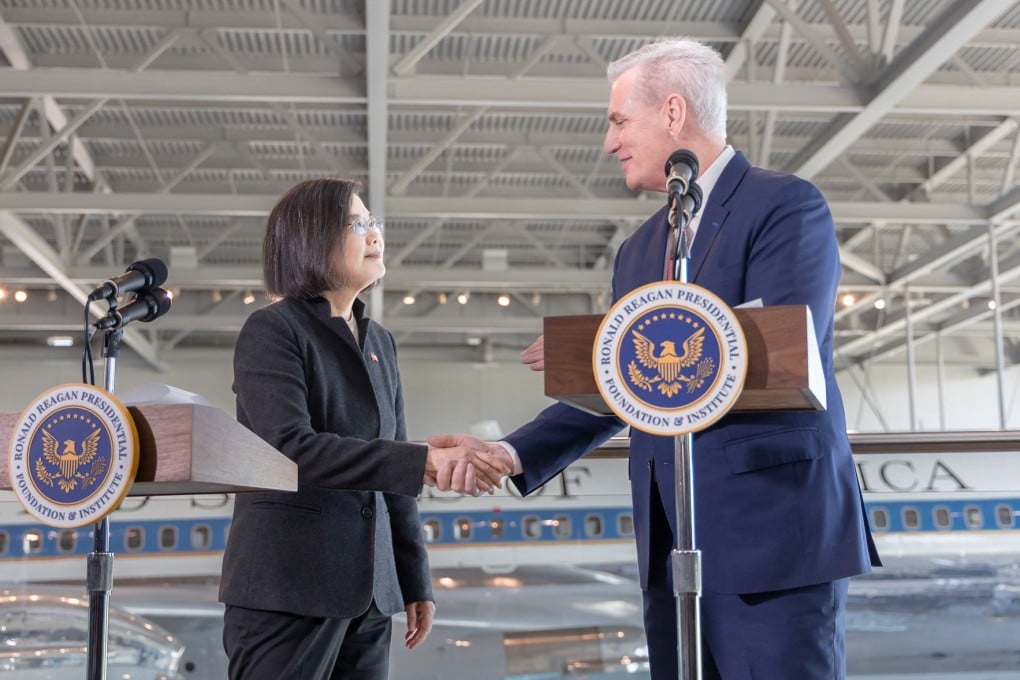Taiwan stands to lose investment, supply chains, if PLA keeps up military drills
- Many US companies have been revising contingency plans as cross-strait tensions rise after the latest round of People’s Liberation Army (PLA) drills
- Latest flare-up follows a meeting between Taiwanese President Tsai Ing-wen and US House of Representatives speaker Kevin McCarthy in California

The possibility of more mainland Chinese military exercises near Taiwan could slowly push investors and suppliers away from the tech-dependent island if it threatens supply chains or raises the risk of actual conflict, analysts said.
Although the drills formally ended last Monday, the Taiwanese defence ministry said PLA aircraft continued to cross an informal Taiwan Strait median line between the two sides over the following two days, consistent with an almost daily pattern since mid-2020.
The behaviour of the PLA is understood, and companies for several years now have been looking at how they can de-risk their footprints in China and Taiwan
Beijing views the self-ruled island as a breakaway province that needs to be reunited with the mainland – by force if necessary. It insists on a one-China principle when dealing with the European Union, the United States and other countries, and repeatedly threatens actions against moves towards Taiwanese independence, which is advocated by the island’s ruling Democratic Progressive Party.
Analysts say multinationals – including Taiwan’s prized semiconductor firms, which pump out 60 per cent of the world’s chip supplies – are expected to double down on searches for production sites outside Taiwan, which could be a blow to the island’s US$829 billion economy.
“The behaviour of the PLA is understood, and companies for several years now have been looking at how they can de-risk their footprints in China and Taiwan, specifically,” said Rupert Hammond-Chambers, president of the US-Taiwan Business Council advocacy group.